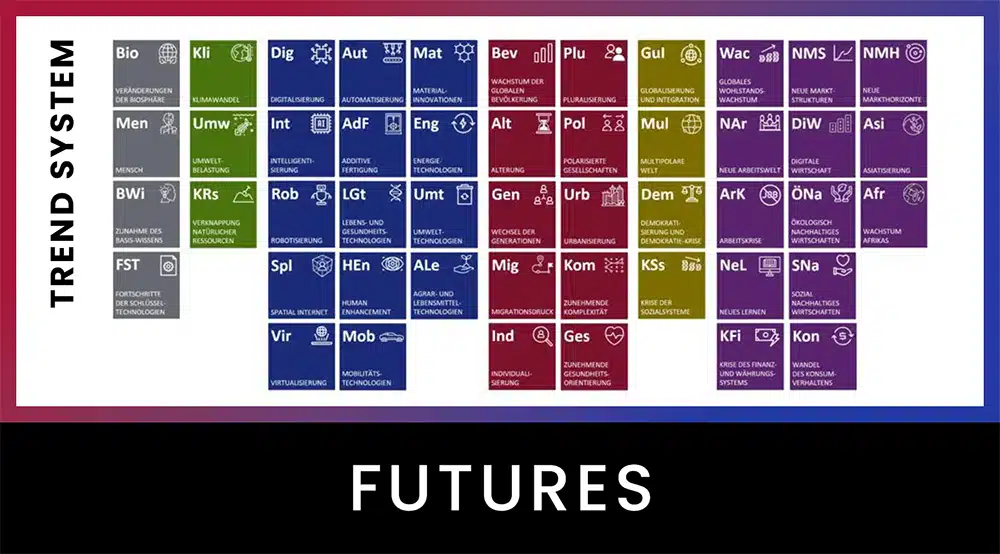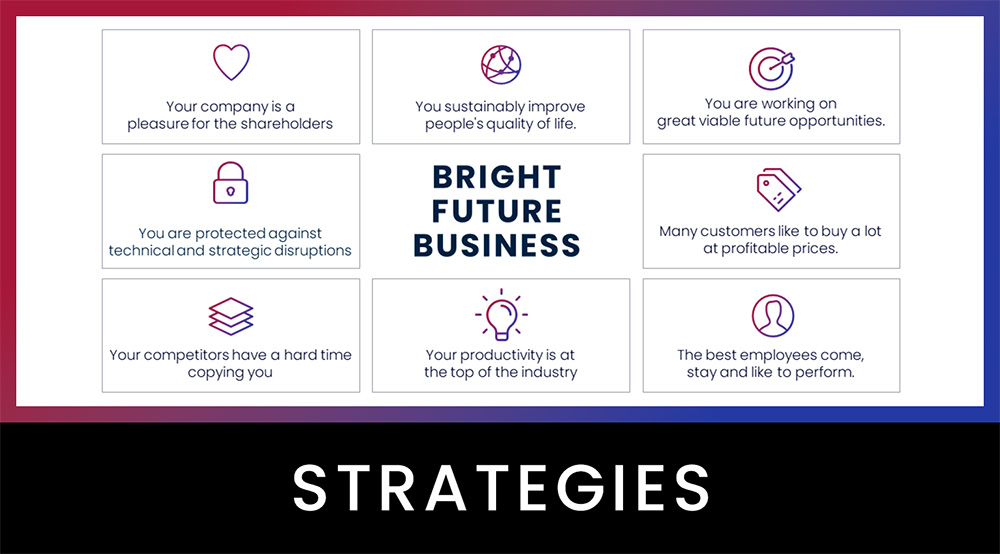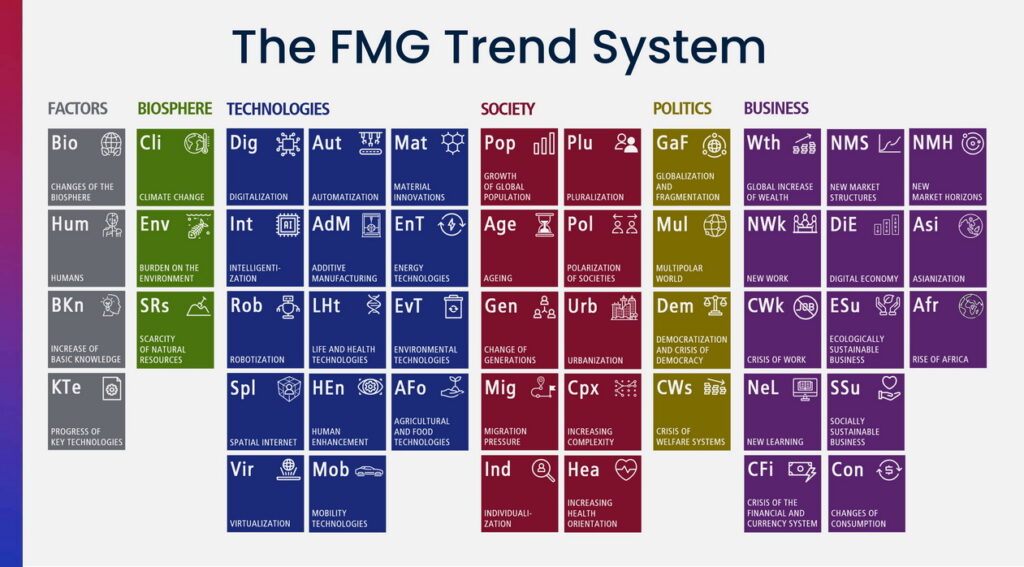Future management is the totality of all systems, processes and methods for the early identification of future developments and their incorporation into strategy. Future management is the bridge from the practice of business management and life management to futurology and back again. It turns pure futurology into a holistic concept with interfaces to strategic and operational management.
- Future management closes the gap in understanding between the often abstract, nebulous and non-committal future and trend research and the practical requirements of managers in companies.
- Future management helps to systematically analyze the future of society, economy, technology, politics and the biosphere, to identify future opportunities, to develop future strategies and to build future competence.
- Future management serves to identify, evaluate and exploit future opportunities. It helps to have more time to get a head start.
Importance of future management
How can you manage something that does not exist? You cannot grasp the future, you cannot measure it, you cannot weigh it, and you cannot count it. So you don’t manage either? We can only manage the future in our heads, because that is where the future is. There we find the future assumptions, opportunities, hopes, fears, goals and plans.
“It is the mind that builds the body,” wrote Friedrich Schiller in Wallenstein.
What begins today in the mind as the future will become reality tomorrow. What is your business, your success and your balance sheet today, you caused years ago based on your assumptions about the future at that time and your perception of the opportunities with your strategy. What you assume, perceive, decide and do today about the future determines the quality of your future present.
You can expand, enrich, solidify and make your future knowledge more effective. So that you can decide, design and act more intelligently for the future.
That is future management: a professional approach to the future in your mind and in the minds of your employees. So that your future and thus your future present become bright. But what is the significance of future management now? Here are two questions about this:
- What percentage of today’s success depends on the long-term course set a few years ago?
- What percentage of the time do we spend seriously thinking consciously about the next 10 years?
- Answer: about 70%. What’s interesting is that you can basically ask any audience – a similar value always comes out.
- Answer: below 5 %. This has been studied in companies, with managers and also with life entrepreneurs. Now you might think: For God’s sake, these 2-3% are far too little. But this is not so. It has settled down like that and that’s fine.
When you look at these two results together, you realize that you have a huge lever in your hand with future management. Thinking and deciding a little about the future can mean tremendous success. But as we and especially financial professionals know today, any lever can also work in the opposite direction. I can drive my company to the wall with goodwill and with beautiful pictures of the future. So it’s a personal, corporate and social responsibility we have, for the future. And not just a bit of success engineering and dreaming.
The basic principle of future management
A single threat is small when it arises. But it grows over time if it is important and relevant. The effort to turn this threat into an opportunity also grows over time. It’s like cancer: if you catch it early, it’s easy to fight. The later it is discovered, the more difficult and threatening the situation becomes. What about the opportunity? Opportunities – and there are more of them for companies today than ever before – are unfortunately not always so easy to recognize. And every chance shrinks with time.
Every company has some kind of future management in some way. You can’t do without it. We all have assumptions, we all look to the future, we all have something like goals and visions. What we should do in the competition for early detection is to improve the skills in our own future management. Getting it to where we can identify opportunities earlier, but at the same time protecting ourselves from being too early. Because that is at least as bad as missing an opportunity. So it’s about strengthening yourself in the competition for foresight.
Best practices in future management
Many practitioners avoid discussions about the future because they so often end in fog and chaos. The core problem is that you rarely have clear and precise language for the future. This creates troublesome and dangerous future confusion. Therefore, methods and tools are also often used in the wrong place and applied incorrectly. This is why alignments, visions and strategies are often so imprecise and inconsistent.
With the Eltville model you solve the complexity problem in future thinking. The Eltville model has proven itself in hundreds of projects and in countless companies and organizations, including governments. The Eltville model is based on the five basic human motives for foresight, the five “future glasses”.
The sound and precise definitions of the five types of future and the associated outcomes and processes make professional future management easy for you. This is what makes the Eltville model so easy to understand, despite the necessary complexity. That’s also what makes it so connectable for your managers and employees. Even investors are excited because of the solidity of the strategies developed with it.
Follow these links as well:
► The Future Strategy Program for SMEs
► Free video crash course THE FUTURE OF YOUR BUSINESS
► BUSINESS WARGAMING for robust business and future opportunities
► KEYNOTES by Pero Mićić for your employees and customers
Have a bright future!


































